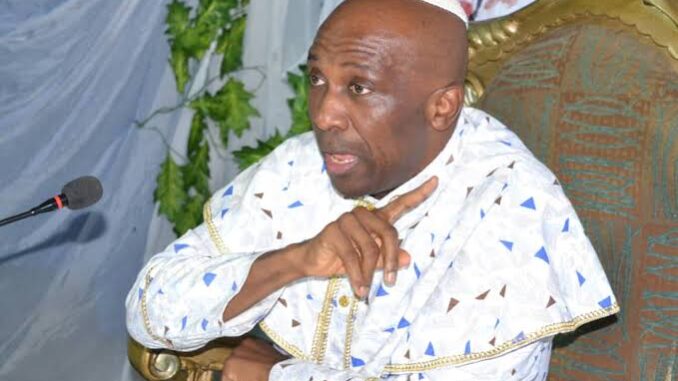
A bag of rice will go for N20,000 and a half bag will go for N10,000 -Primate Ayodele
According to Punch, Primate Babatunde Ayodele, the founder of the INRI Evangelical Spiritual Church, announced his upcoming visit to Ekiti state on the 26th, where he plans to continue his initiative of selling rice at reduced prices.
He revealed that a bag of rice would be priced at 20,000 Naira, with a half bag at 10,000 Naira. Ayodele emphasized that his endeavor was a pioneering effort, inspired by what he believes to be divine guidance.
He acknowledged the possibility of criticism for his perceived pride in being the first to implement such an initiative.
Ayodele argued that funds should have been directed to technocrats, religious leaders, and traditional rulers instead of politicians.
He suggested that these groups would have been more effective in identifying those in need. Ayodele also touched on the topic of agricultural production, advocating for mechanized farming and the establishment of more rice mills in Nigeria.
Additionally, he expressed skepticism about the impact of the Dangote refinery on the Nigerian economy, stressing the importance of processing crude oil domestically to resolve petrol-related issues.
Ayodele concluded by proposing that instead of sending money directly to individuals, the government should invest in purchasing more food to reduce prices.
He envisioned the creation of a government market to achieve this goal and aimed to reach 200 to 250 people with his efforts in Ekiti state.
He said that, “I will be in Ekiti state on the 26th and I will do the same thing there. A bag of rice will go for N20,000 and a half bag will go for N10,000. We are the first to do it and I’m sorry to say this before they say I am too proud but that’s what happens when God inspires you as the first person to do such a thing. The government failed in the palliatives. They failed because they were not supposed to give the money to politicians but to technocrats, religious leaders, and traditional rulers; they would have identified the people who needed it better.”

Leave a Reply